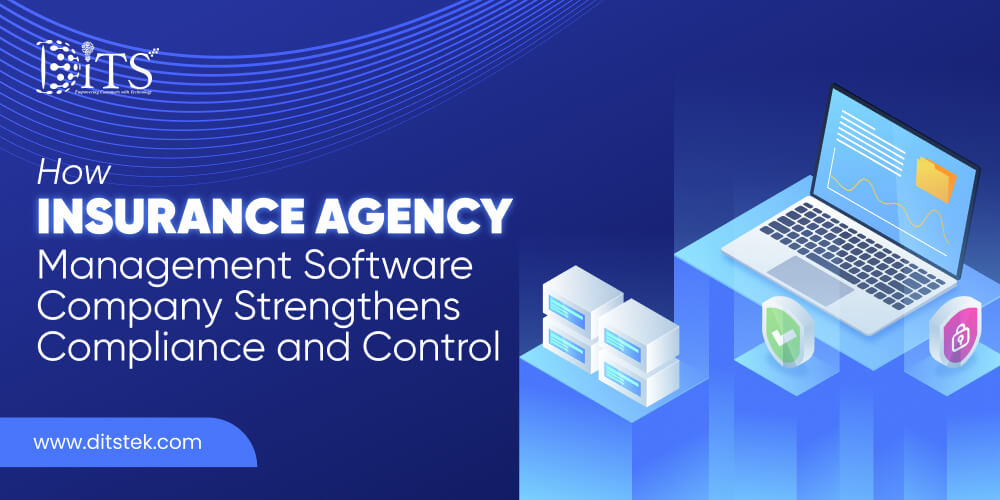The Importance of RCM in Healthcare-Ditstek Innovations
Table Of Content
Published Date :
28 Feb 2023
Revenue cycle management (RCM) is a critical process in healthcare that is essential to the financial health of medical institutes and healthcare organizations. It involves managing the entire cycle of revenue generation from patients, including registration, appointment scheduling, insurance verification, coding, billing, and collections.
Revenue cycle management process helps healthcare organizations ensure accurate and timely payment for services they provide, allowing them to focus on providing quality care to their patients.
Why Revenue Cycle Management is so Important?
Here are some reasons why revenue cycle management is important in healthcare:
Increased Efficiency
RCM streamlines the entire revenue cycle process, making it more efficient and reducing the likelihood of errors. This leads to faster billing and reimbursement, which in turn leads to increased cash flow for the healthcare organization.
Improved Revenue
By ensuring that all claims are billed correctly and promptly, RCM helps healthcare organizations maximize their revenue. It also helps prevent denials and underpayments, which can significantly impact the financial health of a medical practice.
Compliance
Healthcare organizations must adhere to a complex set of rules and regulations related to billing and coding. Failure to comply with these regulations can result in severe financial and legal consequences. RCM helps ensure compliance with these regulations, reducing the risk of penalties and fines.
Patient Satisfaction
Effective revenue cycle management improves the patient experience by reducing the time it takes to process insurance claims and handle billing inquiries. This leads to increased patient satisfaction, which can translate into better patient retention and increased revenue.
Strategic Planning
RCM provides healthcare organizations with valuable data and insights that can be used to inform strategic planning. By analyzing billing and revenue trends, healthcare organizations can identify areas for improvement, develop new services, and optimize their revenue streams.

How to Improve Revenue Cycle Management?
Improving Revenue Cycle Management (RCM) in healthcare requires a holistic approach that involves optimizing several key areas of the revenue cycle process. Here are some steps that healthcare institutes can take to improve their RCM:
- Optimize patient registration: Accurate patient registration is essential to effective RCM. Healthcare institutes should ensure that patients are accurately registered, and their insurance information is verified at the time of registration. This can help prevent errors and reduce the risk of denied claims.
- Streamline claims processing: Healthcare companies should aim to streamline their claims processing by ensuring timely and accurate submission, tracking, and follow-up of claims. This can help reduce the risk of denied or rejected claims and optimize reimbursement rates.
- Maximize payer contracts: Payer contracts that are in the best interest of a healthcare company should be negotiated, optimized, and regularly reviewed. This can help maximize reimbursement rates and reduce the risk of underpayments.
- Improve coding accuracy: Coding accuracy is critical to ensure proper reimbursement. Healthcare institutes should focus on improving the accuracy of their coding processes and regularly train staff on the latest coding requirements.
- Automate revenue cycle processes: Automation can help healthcare institutes reduce errors, increase efficiency, and optimize the revenue cycle process. This can include automating claims submission, payment posting, and denial management processes.
- Provide patient education: Patients should be provided with clear and accurate information about their financial responsibilities, including co-pays, deductibles, and self-pay balances. This can help reduce confusion and improve patient satisfaction.
- Regularly review and analyze revenue cycle data: Healthcare institutes should regularly review and analyze revenue cycle data to identify areas where they can improve. This can help optimize revenue, reduce costs, and improve overall financial performance.
Also Read: Why Healthcare Providers Are Turning to Outsourced RCM and Medical Billing
Effective Revenue Cycle Management Solutions
Advanced revenue cycle management services and applications can offer a range of features that can help healthcare institutes streamline their revenue cycle processes and improve financial performance. Here are some common features that you can expect in an RCM solution:
- Patient Scheduling and Registration: RCM applications can help healthcare institutes manage patient scheduling and registration processes, including appointment reminders and pre-registration activities. This can help ensure that patient information is accurate and up-to-date, which can help reduce errors and improve the efficiency of the billing process.
- Claims Management: RCM programs can help manage the entire claims process, from eligibility verification and coding to claim submission and follow-up. The healthcare software can help identify errors and discrepancies, and automate the resubmission process for denied or rejected claims. This can help improve claims acceptance rates and reduce the time and effort spent on claims management.
- Reporting and Analytics: Reporting and analytics are important areas for every forward-thinking business today and healthcare is no different. With an advanced revenue cycle management solution, you can extract these stats including financial performance metrics, claims processing metrics, and patient revenue metrics. This can help identify areas where you can improve revenue cycle processes and optimize revenue.

- Payment Processing: RCM applications can also help healthcare institutes process payments, including co-pays, deductibles, and self-pay balances. The custom healthcare software can provide automated payment processing, including electronic payment and remittance posting, and can help reconcile payments with claims.
- Compliance and Regulatory Support: It’s easier to stay compliant with regulations related to billing and coding when using RCM software. The software can provide automated coding and documentation processes, and help ensure that healthcare institutes are following the latest regulatory requirements.

- Patient Engagement: All tools for patient engagement, including automated appointment reminders, patient portals, and online bill payment are provided by advanced revenue cycle management programs. These programs help improve the patient experience and reduce the risk of billing errors or confusion.
Conclusion
It’s clear that revenue cycle management is a crucial process in healthcare that helps ensure the financial health of medical practices and healthcare organizations. By streamlining the entire revenue cycle process, RCM improves efficiency, increases revenue, ensures compliance, enhances patient satisfaction, and provides valuable data for strategic planning. Thus, implementing effective revenue cycle management is essential for healthcare organizations that want to provide high-quality care while maintaining a strong financial position.

Nidhi Thakur
With more than 19 years of experience - I represent a team of professionals that specializes in the healthcare and business and workflow automation domains. The team consists of experienced full-stack developers supported by senior system analysts who have developed multiple bespoke applications for Healthcare, Business Automation, Retail, IOT, Ed-tech domains for startups and Enterprise Level clients.
Recent Posts

Learn how to migrate data from legacy systems for startups step by step. This easy guide helps modern businesses migrate smoothly and avoid data loss.

An MVP product development consultant helps leaders validate ideas early, reduce execution risk, and build confident momentum before committing significant time, budget, and resources strategically.

Learn how insurance agency management software company platforms embed governance, automate compliance, enhance data control, and give leadership real time visibility for scalable operations growth.